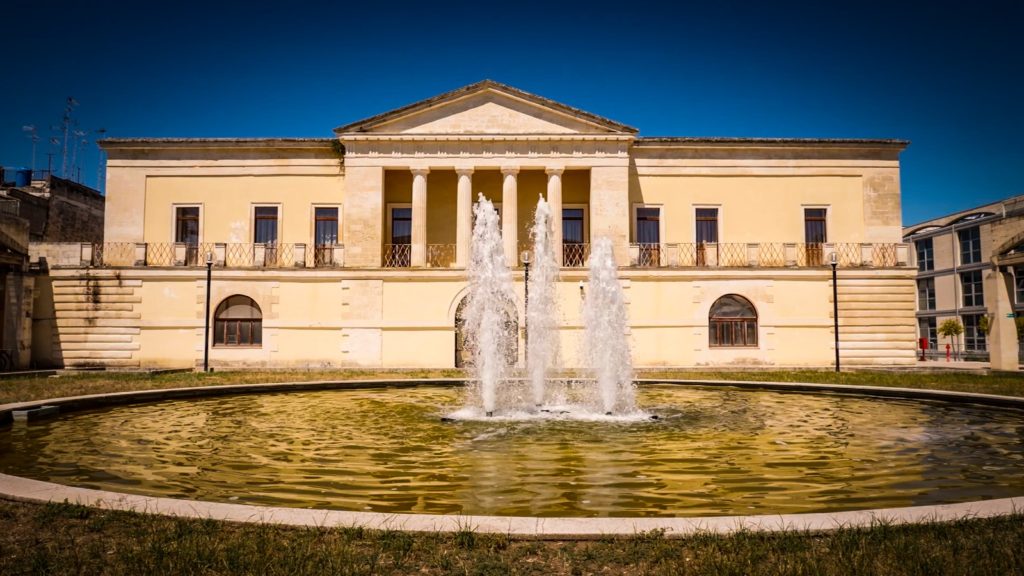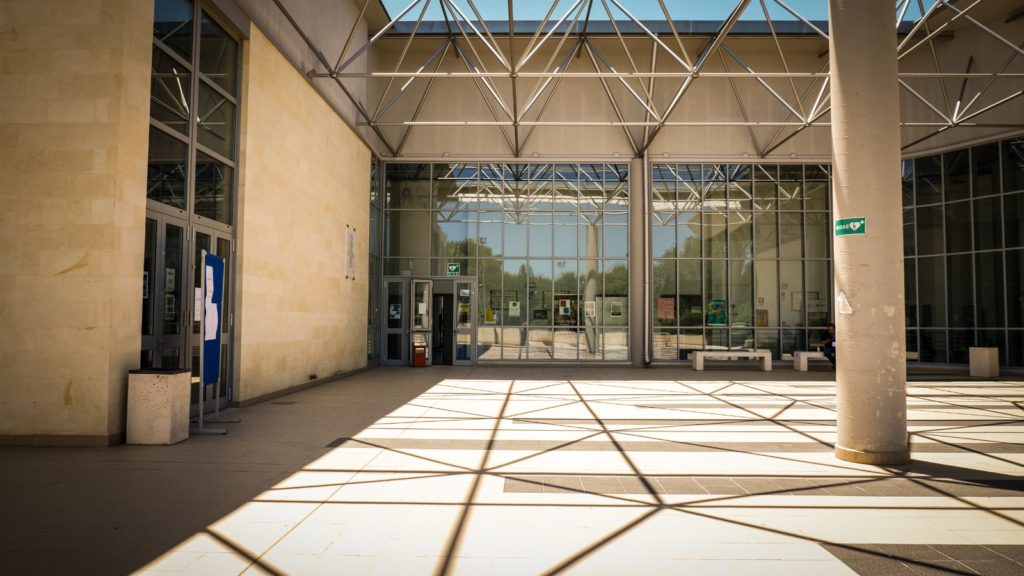SYMPOSIA & ROUND TABLES
SYMPOSIA
S1 – Advancing Avian Research: Remote Surveillance Technologies for Bird Monitoring and Behavioral Studies
The advent of remote surveillance technologies such as camera traps, drones and video-surveillance systems has revolutionized avian research, enabling non-invasive, precise, automatic and continuous monitoring of bird populations and behaviors. This symposium aims to explore the diverse applications of these tools in ornithology and is open to contributions from researchers, wildlife managers, private sector representatives and other stakeholders. Through a series of multidisciplinary presentations, we intend to show case studies that highlight the advantages and limitations of these technologies, from the deployment of drones for aerial surveys in hard-to-reach nesting sites to the use of cameras in studying nocturnal species, or to get population-level information for colonial, elusive or perching species. The symposium will also delve into the integration of artificial intelligence and machine learning for data processing, presenting future possibilities for automated identification and behavior analysis. There will be room for addressing the ethical and practical challenges associated with the use of remote devices, including wildlife disturbance and the need for standardized protocols. This event seeks to foster collaboration among researchers, conservation practitioners and private sector aiming to advance the field of avian monitoring and ensure sustainable and responsible use of emerging technologies.
Organizers:
- Sauro Giannerini, Oasi Dynamo
- Flavio Monti, CNR-IRET
S2 – Dalle coste agli oceani: i nuovi orizzonti di ricerca nell’ecologia comportamentale degli uccelli marini
Gli uccelli marini possiedono adattamenti unici che consentono loro di spostarsi e alimentarsi sopra e sotto la superficie del mare, nonché di riprodursi in una vasta gamma di ambienti terrestri. Negli ultimi anni, i progressi tecnologici e metodologici hanno notevolmente ampliato le conoscenze sulla loro ecologia e comportamento, sia durante la stagione riproduttiva che nei periodi di migrazione e dispersione in alto mare. Le ricerche ecologiche hanno evidenziato le complesse interazioni tra queste specie di uccelli e l’ambiente marino, mettendo in luce il loro ruolo cruciale come predatori nelle reti trofiche e la loro vulnerabilità alle variazioni nella disponibilità di prede nonché al cambiamento climatico. Parallelamente, gli studi comportamentali hanno approfondito le strategie di foraggiamento, i modelli migratori e le dinamiche sociali, rivelando movimenti a lunga distanza e sistemi di comunicazione sofisticati. L’uso di strumenti avanzati, come i dispositivi di tracciamento, i sensori acustici, l’analisi degli isotopi stabili e il monitoraggio degli inquinanti, insieme al crescente contributo della citizen science, ha permesso di dettagliare le rotte migratorie, le preferenze ambientali e trofiche, nonché di valutare le risposte degli uccelli marini ai cambiamenti ambientali. Inoltre, la ricerca ha fornito preziose informazioni su processi chiave quali la selezione sessuale, le cure parentali, le interazioni intra- e interspecifiche e l’impatto delle attività antropiche. Questi dati sono fondamentali per comprendere come gli uccelli marini stiano affrontando la crisi climatica, l’inquinamento e la riduzione delle risorse ittiche, e per sviluppare strategie di conservazione e mitigazione sempre più efficaci.
Organizers:
- Letizia Campioni, Department of Conservation Biology, Estación Biológica de Doñana, Avda. Américo Vespucio, 26, Isla de la Cartuja, 41092 Sevilla, Spain
- Rosario Balestrieri, Stazione Zoologica Anton Dohrn, CRIMAC, Calabria Marine Centre, Dep. of Integrative Marine Ecology, c. Torre Spaccata 87071, Amendolara (CS), Italy
- Salvatore Urso, Stazione Zoologica Anton Dohrn; CRIMAC, Calabria Marine Centre, Dep. of Integrative Marine Ecology, c. Torre Spaccata 87071, Amendolara (CS), Italy
S3 – Studying birds outside the breeding season: new evidence and challenges
Animal life cycles are often subdivided into breeding and non-breeding periods. Historically, ornithological research focused on breeding, due to the inherent challenges of studying birds away from the nest. However, growing evidence highlights that what happens when birds breed is not independent of what happens when they are not. For instance, the ability to build up energy reserves at wintering grounds predicts when migratory birds depart and, subsequently, arrive at breeding grounds, with earlier migrants better able to time their reproduction to peaks in resources. More recently, studies on non-migratory birds that flock during the non-breeding period have found that flock membership is far from random. These preferred associations can result in highly organized societies that were previously only thought possible in large-brained mammals. These examples suggest that biasing research towards breeding birds has greatly limited our understanding of their ecology and behaviour. Recent advances in our ability to track birds year-round when they are not breeding, such as year-round GPS-tracking, or long-term colour banding offer a way to tackle questions across all the life-history stages. This symposium will bring together research from non-breeding birds and highlight the opportunities that exist when studying birds during this largely overlooked life-history stage.
Organizers:
- Samuele Ramellini, Australian National University
- Giacomo Assandri, University of Piemonte Orientale
S4 – Italian Ornithological Commission: from the routine assessment to the national check-list
The Italian Ornithological Commission was founded over 40 years ago with the aim of validating the reports of vagrant birds in Italy. In the following years it has become a valuable support tool for updating the status and phenology of species present in the national territory, which constitute the first step of any ornithological research. The periodic updating of the checklist, in accordance with the role played by the Italian Ornithological Commission, therefore represents the most important tool through which to provide basic information that summarizes the status of species in Italy. Furthermore, taxonomic research has produced important changes in the systematic lists in recent years, opening a debate that is not yet completely concluded among taxonomists that it is considered necessary to analyze in a national forum. At the same time, the growing development of citizen science and the rapid evolution of data sharing platforms provide more and more records to be submitted to the validation commissions, which play an even more important role than in the past in coordinating the flow of information, aimed at updating the checklist.
Organizers:
- Egidio Fulco, CISO – Centro Studi De Romita
- Cristiano Liuzzi, CISO – Centro Studi De Romita
S5 – Movement ecology offers new perspectives on ecological barriers, connectivity and energy trade offs
Movement permeates all aspects of life on Earth, underpinning crucial behaviors across scales. It enables animals to find mates, escape predators, and locate resources locally and across vast distances. As such studying the interaction between organisms and their environment is both fascinating and necessary, given the pace of environmental change. Birds connect ecosystems by travelling thousands of kilometers and are adapted to navigate the extremely dynamic aerial environment. Technological advancements enable us to track smaller birds and larger flocks, while capturing environmental details at unprecedented resolution. This wealth of data is allowing us to test long-standing hypotheses and challenge established concepts, such as the definition of ecological barriers. Integrating new information with advanced computational tools is pushing the boundaries of theoretical models, that predict how environmental changes will impact movement patterns and their subsequent ecosystem-level consequences, such as connectivity in human-modified landscape, disease transmission or reforestation processes. As movement ecology evolves into an increasingly data-driven science, we face the exciting challenge of balancing new discoveries with established knowledge, detailed observations with broad generalizations, and field studies with data analysis. This symposium showcases examples of this dynamic field, hoping to offer a glimpse into the promising future of movement ecology research.
Organizers:
- Martina Scacco, Swiss Federal Institute for Forest, Snow and Landscape Research WSL
- Jacopo Cerri, Mammal Research Institute, Polish Academy of Science
S6 – Monitoraggio dell’avifauna per le politiche di conservazione: sfide, metodi e prospettive in Italia
Le crescenti richieste di monitoraggio dell’avifauna, finalizzate a orientare e valutare le politiche di conservazione a livello dell’Unione Europea e delle popolazioni biogeografiche, hanno stimolato lo sviluppo di progetti di monitoraggio sempre più avanzati e scientificamente robusti. In Italia, ciò si è tradotto nella realizzazione di iniziative caratterizzate da un elevato standard qualitativo dei dati raccolti e da metodi analitici sofisticati. Le tradizionali politiche basate su dati ‘expert-based’ stanno progressivamente cedendo il passo ad approcci più strutturati, con una crescente enfasi sull’accuratezza e la replicabilità dei risultati. Il simposio presenterà una panoramica dei principali progetti di monitoraggio in corso, con l’obiettivo di stimolare una discussione critica sui metodi e le tecniche impiegate. Un ulteriore scopo sarà quello di promuovere una maggiore consapevolezza e partecipazione da parte degli ornitologi italiani, invitando alla condivisione delle esperienze e al confronto sulle sfide attuali e future della ricerca ornitologica.
Organizers:
- Lorenzo Serra, ISPRA
- Claudio Celada, Lipu
ROUND TABLES
T1 – Nature Restoration Law: roles and opportunities for the ornithological community
The Nature Restoration Law is a key act to reverse biodiversity loss. To implement it, Member States must draw up a National Restoration Plan containing data on the conservation status and concrete restoration measures. For the plan to be effective, it will be essential that the drafting process is participatory and that all available scientific knowledge are included. The ornithological community can play a key role, both because it is the repository of knowledge on the state of bird conservation and because of it has the knowledge of the necessary environmental restoration measures that should be included in the plan.
Organizers:
- Federica Luoni, Lipu BirdLife Italia
- Claudio Celada, Lipu BirdLife Italia
T2 – Invasive Alien Bird Species in Italy: Challenges, Management, and Best Practices
Invasive Alien Species (IAS) pose an increasing threat to biodiversity and ecosystems in Italy. This round table brings together experts to discuss control strategies, management approaches, and best practices in addressing the impact of invasive bird species. Key topics include monitoring methods, containment measures, and regulatory implications, with a focus on case studies. The discussion will also explore challenges related to public acceptance and coordination between local and national authorities. The goal is to share effective solutions to mitigate the impact of invasive species, promoting an integrated approach to the conservation of native wildlife.
Organizers:
- Enrico Caprio, Dipartimento di Scienze della Vita e Biologia dei Sistemi, Università di Torino
- Stefano Costa, Ente Di Gestione Delle Aree Protette Del Po Piemontese, Centro di Referenza Avifauna Planiziale, Regione Piemonte
- Stefano Volponi, Istituto Superiore Protezione e Ricerca Ambientale (ISPRA), Dip.to BIO – Monitoraggio e Tutela dell’Ambiente per la Conservazione della Biodiversità
T3 – Monitoraggio e conservazione del fratino in Italia
Il Comitato Nazionale per la Conservazione del Fratino, nato nel 2013 per tutelare il fratino, si prefigge come obiettivi principali il coordinamento delle associazioni che operano sulla specie, la realizzazione di censimenti e l’elaborazione di strategie di conservazione. La popolazione di fratino in Italia ha registrato negli ultimi anni un preoccupante calo in relazione soprattutto all’impatto delle attività antropiche; la tavola rotonda vedrà la partecipazione delle realtà che operano nelle varie regioni e il confronto su diverse tematiche, quali i risultati del censimento 2025, l’andamento della popolazione, le esperienze locali di monitoraggio, le criticità rilevate e le strategie di tutela.
Organizers:
- Alessandro Sartori, Comitato Nazionale Conservazione Fratino
- Roberto Tinarelli, Comitato Nazionale Conservazione Fratino
T4 – Avifauna in città: atlanti ornitologici e gestione dell’ecosistema urbano
Lo studio dell’avifauna urbana ha interessi scientifici, culturali e gestionali. In fatto di atlanti ornitologici urbani, l’Italia è al vertice della produzione internazionale. Al Workshop di Cremona, novembre 2024, è stato aggiornato il panorama (a oggi conta 71 indagini per 47 aree urbane) ed è stato deciso di aggiornare le linee guida metodologiche. La tavola rotonda sarà l’occasione per discutere di questa revisione, anche alla luce dell’importanza che i dati sull’avifauna urbana hanno nel contribuire alla definizione di percorsi legislativi quali il piano nazionale della Restoration Law, nonché la gestione del verde urbano e il contrasto al consumo di suolo.
Organizers:
For further information, please contact: segreteriacisocoi@gmail.com



